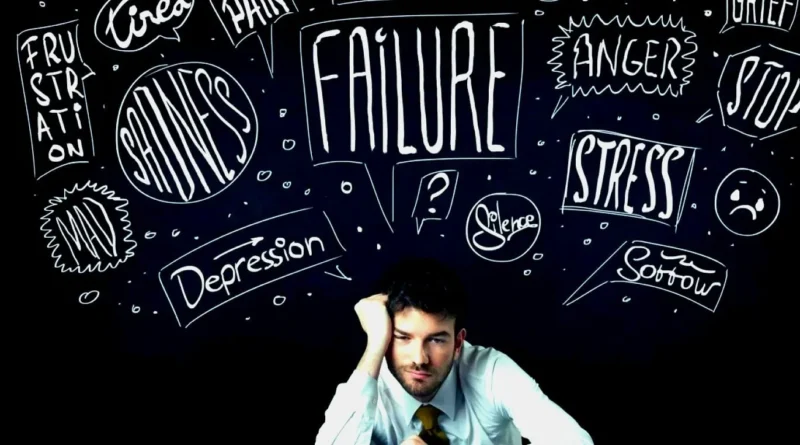How to fight with depression
How to fight with depression? is one of the main question which most of the people is facing now a days. Depression is a common but serious mood disorder that can affect how you feel, think, and handle daily activities. It is more than just feeling sad or going through a rough patch; it’s a persistent feeling of sadness and loss of interest in activities that you once enjoyed. Depression can interfere with your ability to work, study, eat, sleep, and enjoy life. It ca literally ruin your life if not handled properly.
Symptoms of depression can vary from person to person but may include:
- Feeling sad, hopeless, or empty
- Loss of interest or pleasure in activities you once enjoyed
- Changes in appetite or weight
- Sleep disturbances, such as insomnia or oversleeping
- Fatigue or lack of energy
- Feelings of worthlessness or guilt
- Difficulty concentrating or making decisions
- Thoughts of death or suicide
Depression can be caused by a combination of genetic, biological, environmental, and psychological factors. It can occur at any age, but it often begins in adulthood. Women are more likely than men to experience depression. Treatment for depression may include therapy, medication, or a combination of both. It’s important to seek help from a mental health professional if you think you may be experiencing depression. With proper treatment and support, most people with depression can get better.
lets explore some methods to fight with depression

1. Understand What Depression Is
Depression is more than just feeling sad or down. It’s a mental health condition that affects how you think, feel, and act. Symptoms of depression can vary from person to person but may include feelings of hopelessness, loss of interest in activities you once enjoyed, changes in appetite or weight, sleep problems, and difficulty concentrating.
2. Talk About Your Feelings
One of the most important things you can do if you’re struggling with depression is to talk about how you’re feeling. This could be with a friend, family member, or mental health professional. Opening up about your emotions can help you feel less alone and can provide you with the support you need to cope. always share your feelings with loved once so that they can help you out with this.
3. Stay Connected
Depression can make you want to withdraw from others, but staying connected with friends and loved ones is crucial for your mental health. Make an effort to reach out to others, even if it’s just for a quick chat or a walk in the park. Social support can help you feel more connected and reduce feelings of isolation. More is better when you are dealing with depression, always share your feelings and stay connected with your family and friends.
4. Take Care of Your Body
Physical health and mental health are closely linked, so taking care of your body can have a positive impact on your mood. Try to eat a healthy diet, exercise regularly, and get enough sleep. These simple steps can help improve your overall well-being and may reduce symptoms of depression. Physically when you are active some good hormones produces by your body which helps you to fight with depression. Take care of your body as you take care of your family while fighting with depression.
5. Challenge Negative Thoughts
Depression often involves negative thinking patterns that can make you feel worse. Try to challenge these negative thoughts by asking yourself if they are really true or if there might be a more positive way to look at the situation. Cognitive behavioral therapy (CBT) is a type of therapy that can help you identify and change these negative thought patterns. When your are fighting with depression negative thoughts will definitely strike your mind but you have to dealt with them go for walk, do yoga, do meditation to keep your aura positive.
6. Do Things You Enjoy
Depression can rob you of your interest in activities you once enjoyed, but doing things you love can help lift your mood. Make a list of activities that bring you joy, whether it’s reading a book, listening to music, or going for a walk, and try to incorporate them into your daily routine. when you do things which you enjoys most you actually favor yourself. When you keep yourself engage in the activities you like most, you stay away from negativity and ultimately from depression.
7. Seek Professional Help
If your depression is severe or if you’re struggling to cope, it’s important to seek professional help. A mental health professional, such as a therapist or psychiatrist, can offer you support and guidance and may recommend treatments such as therapy or medication. After doing so much if still you are benefitting, then now is the time to seek professional help, who van guide you better to fight with depression.
Self-care is an important part of managing depression. Take time to do things that nourish your mind, body, and soul, whether it’s taking a warm bath, practicing mindfulness, or spending time in nature. Self-care can help you feel more grounded and better able to cope with the challenges of depression. You are the only person in the entire world, with whom you spend most of your time, so practice self care.
9. Be Patient with Yourself
Recovering from depression takes time, so it’s important to be patient with yourself. Don’t expect to feel better overnight, and remember that setbacks are a normal part of the recovery process. Be kind to yourself and celebrate your progress, no matter how small. Everything takes time, be gentle on yourself, give some time everything will fall on the line.

